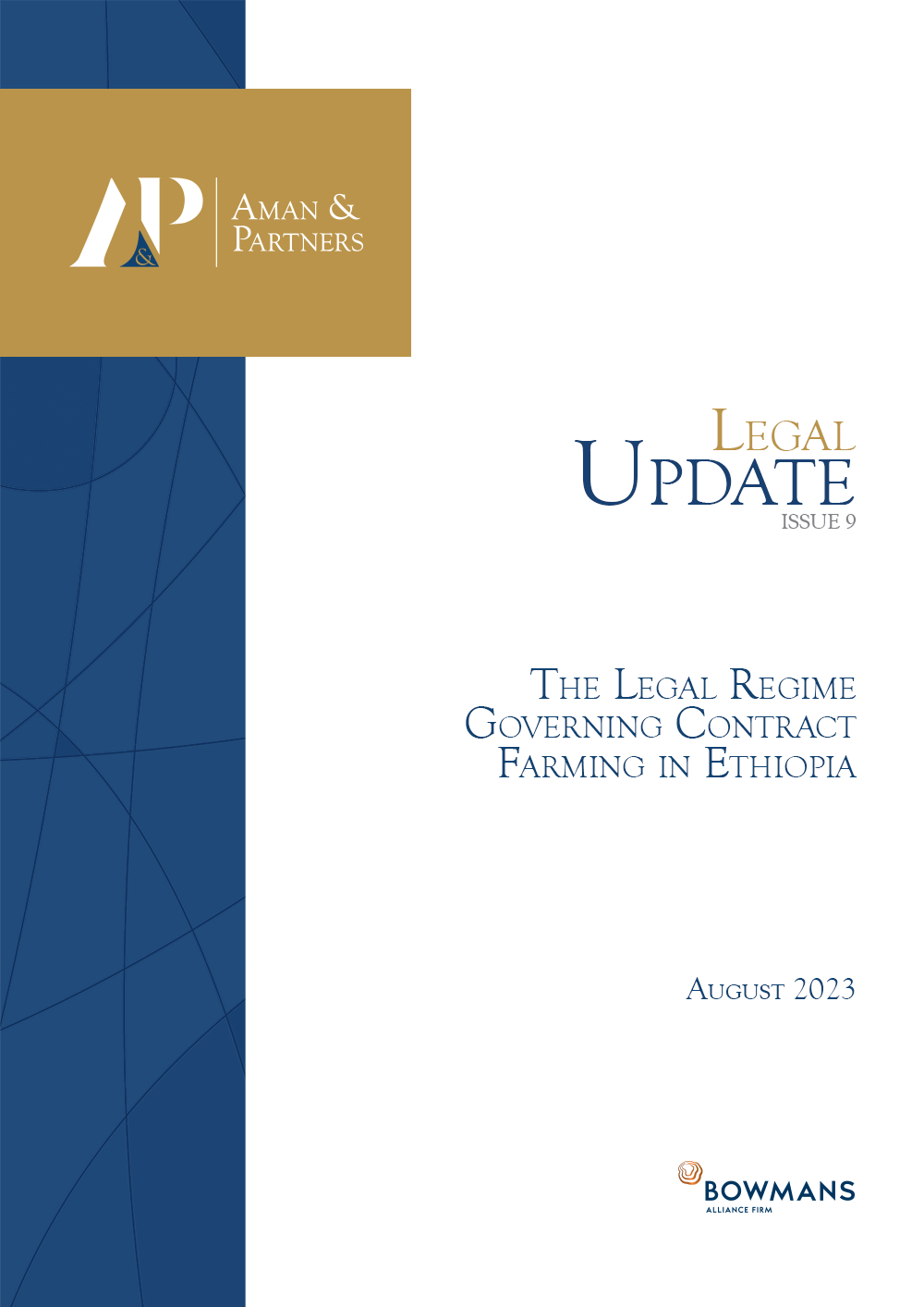On April 27, 2023, in its 15th ordinary meeting, the House of Peoples’ Representatives ratified the Excise Tax (Amendment) Proclamation No. 1287/2023 (“Amendment Proclamation”). One of the introductions under the Amendment Proclamation is the imposition of a 5% excise tax on telecommunications services of mobile and wireless telephone. Telecommunication services were not subject to excise tax before the enactment of the Amendment Proclamation.
With the telecommunications service sector (telecom sector) previously being closed off to private investors, the sector had long been monopolized by Ethio-telecom (previously known as Ethiopian Telecommunications Corporation), a wholly-owned government enterprise. Following the telecom sector liberalization by the Ethiopian government few years ago, Safaricom Telecommunications Ethiopia PLC has become the first private investor to obtain a unified telecommunications service license from the government. In a bid to increase competitiveness in the telecom services sector, the Ethiopian government has recently issued a request for proposal to issue a second unified telecommunications license and to partially privatize Ethio-telecom.
While the sector liberalization is likely to introduce competition among service providers, decrease price for consumers, improve quality and access to digital economic transactions, the recent introduction of an excise tax on the telecom service is likely to have a cost escalation effect raising affordability related issues on the part of end-consumers.
Excisable Telecommunications Services
Under the Amendment Proclamation, the telecommunications services of mobile and wireless, including internet, voice and SMS are subject to excise tax. Landline telecommunications service is not included in the list of services subject to excise tax. Since landline telecom service is still widely used in Ethiopia and as such generates a lot of revenue, the exclusion of such service from the list of services subject to excise tax is far from clear.
According to the Excise Tax Proclamation No. 1186/2020 (“Excise Tax Proclamation”), the excisable value of a service is the fee, commission or charge payable for the services or the fair market value of the service in case the transacting parties are related parties. The excisable value of the service does not include the value added tax, if any, on the services. As such, a telecom tariff excluding VAT would be the excisable value of the telecommunications service that will be subject to 5% excise tax. That said, telecom operators sometimes may provide telecom equipment and services together (for instance, bundle of telecom device along with excisable telecommunications services), or bundle of non-excisable and excisable telecom services (for instance, bundle of landline and mobile, wireless, and voice services) for their customers and charge a single periodic (for example monthly) tariff on the bundled services. In such a scenario, telecom service providers are required to provide a breakdown of the fee/tariff of each line of service and apply the excise tax only on excisable services.
With respect to the time of liability for excise tax, the Excise Tax Proclamation provides that the liability of a person for excise tax on excisable services shall arise at the time of supply of services. Pursuant to the Excise Tax Proclamation, the time of supply of excisable services is the earlier of the date on which the services are performed, the date on which the invoice for the supply of the services is issued or the date in which payment for the supply of the service is received. Thus, telecom service providers should add the 5 % excise tax on telecommunications services at the time of supply of the service.
Registration and Record Keeping Requirements
As per the Excise Tax Proclamation, any person who is engaged in the supply of excisable services is required to be licensed or registered by the Ministry of Revenues (MoR). Thus, telecom operators or other telecom service providers should apply and get registered/licensed by the MoR before providing excisable telecommunications services. Further, excisable telecom service providers have the duty to keep records as required under tax law or a directive to be issued by the MoR. That said, given telecom operators use relatively advanced technology, auditing/verifying the amount of excisable services supplied by such telecom operators is likely to be difficult for the MoR unless it develops capacity to do so. In addition to developing its capacity, it is important that the MoR collaborates and coordinates with other government authorities particularly with the ECA to enhance its capacity of auditing the amount of services supplied and revenues generated by telecom service providers.
Implications on Non-telecom Service Sectors
While the impacts of the introduction of excise tax on telecommunications services are yet to be thoroughly studied, it is apparent that such tax will have far-reaching cost escalation implications on other services that rely on excisable telecommunications services, particularly mobile money (digital financial) services. Digital financial service providers use telecommunications services (such as internet and SMS) as their underlying infrastructure (essential service) to deliver digital financial services to their customers. Increased cost in telecommunications services will thus increase the cost of mobile money services, thereby increasing cost on customers and participants of digital financial services. Likewise, other companies which use telecommunications services as essential services to reach their customers will also be affected. Therefore, the introduction of excise tax on telecom services is likely to increase the cost-of-service delivery not only in the telecommunications service sector but beyond.
Concluding Remarks
With the increased cost resulting from the introduction of excise tax on telecommunications services, the introduction of excise tax on telecom services is not one that can be said to encourage the digitalization journey that Ethiopia has embarked on. The excise tax on telecom services will have an adverse impact in expanding telecom and mobile money services. Ultimately, this is likely to undermine efforts to ensure universal telecom service access and digital inclusion in Ethiopia, particularly in unserved and underserved areas of the country.
Disclaimer
The information contained in this legal update is only for general information purposes. Nothing herein shall be considered and relied upon as a legal advice or a substitute thereto.





